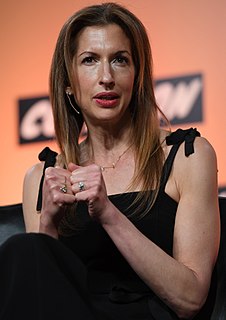A Quote by Hope Jahren
In our tiny town, my father wasn't a scientist - he was the scientist, and being a scientist wasn't his job: it was his identity.
Related Quotes
The scientist is not responsible for the laws of nature. It is his job to find out how these laws operate. It is the scientist's job to find the ways in which these laws can serve the human will. However, it is not the scientist's job to determine whether a hydrogen bomb should be constructed, whether it should be used, or how it should be used. This responsibility rests with the American people and with their chosen representatives.
The books of the great scientists are gathering dust on the shelves of learned libraries. And rightly so. The scientist addresses an infinitesimal audience of fellow composers. His message is not devoid of universality but its universality is disembodied and anonymous. While the artist's communication is linked forever with its original form, that of the scientist is modified, amplified, fused with the ideas and results of others and melts into the stream of knowledge and ideas which forms our culture. The scientist has in common with the artist only this: that he can find no better retreat from the world than his work and also no stronger link with the world than his work.
Since I stayed in a colony where either one was an engineer or a scientist, everybody thought I would be a scientist. This was the expectation everybody had apart from my parents. Honestly, I, too, wanted to be a scientist. I think it was the way Dad would explain us scientific theories and concepts that made the subject more intriguing.
When Arthur Ashe plays tennis, his purpose each day is to play the game in a way he has never played it before. It may be a backhand he uses, one that he may never have used before in that circumstance. His play is a fresh integration of his world at the instant of action. A really great scientist has the whole past at his disposal. At any instant he is rebuilding the world, molecule by molecule, in his subconscious. That is what you want in an athlete or a scientist.


































